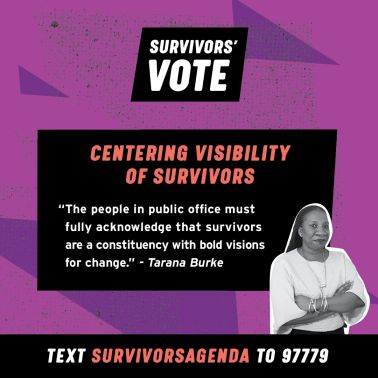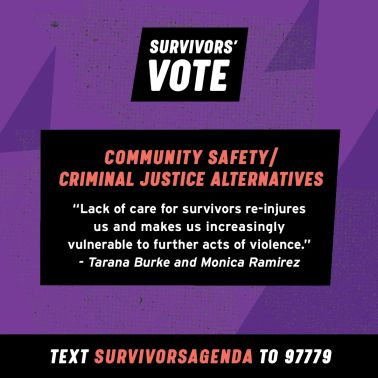
Source: Dani Ayers / Me Too Movement
The Me Too organization has contributed to a ground swell of mobilizing around the need to listen and believe victims of sexual violence.
What began as a hashtag, emboldening victims to come forward and share their stories on social media, began over a decade prior with activist Tarana Burke who has committed her life to fighting for survivors. Burke’s work pushes the movement to acknowledge that Black women should remain central in the conversation surrounding sexual violence, due to the fact that Black women experience sexual violence at higher rates than other disenfranchised groups, second to indigenous women.
In December of 2018, Dani Ayers, an organizational development and board strategist, joined the foundation as COO, later transiting to its first-ever CEO. Ayers envisions expanding the work of the organization to work cross-sectionally with other organizations and activists who understand Burke’s mission as well as pushing to expand globally.
“The fact is 12 million people raised their hand and said, “Me Too,” in October of 2017 and in 24 hours after the hashtag went viral. And 12 million people is a voting bloc. It’s a community. And so we do truly believe that we can organize survivors to vote along their needs and that’s never been done before, so we’re really excited about this campaign,” Ayers said.
For Black women, Ayers says the threat of sexual violence prevails on many fronts and includes medical racism, not being believed by our own community members and the threat of violence at the hands of police.

Source: Me Too / Me Too Movement
“When you have the cross section of patriarchal violence and enslavement, the group that’s going to be adversely affected and the most unseen is Black women. And that has just continued over the years, that is still true today. It is so steeped in our culture and in our systems, political structure, culture systems our political systems that it is part of our fabric in this country,” she said.
In September the organization launched a get out the vote campaign to make it plain that the concerns of survivors will no longer be pushed to the wayside. The Survivors’ Vote campaign, which is an extension of the group’s Survivors’ Agenda, a multi-layered action plan to center survivors and express their important demands to legislators. The organization has also launched a peer-to-peer texting campaign where participants can text “Survivors’ Agenda” to 97779 and also receive voting tips and tools catered to survivors.
“Survivors’ Vote is an offshoot of the Survivors’ Agenda which we developed in coalition with 30 or so partner organizations. And the Survivors’ Agenda is a platform that addresses the various systems and structures in our society. There’s labor, education, housing, health care, healing justice. And it addresses what’s wrong in these systems and the interruptions that need to be made to improve these systems for survivors,” said Ayers.
“So we have four intersections. Building a community of survivors, making our voices heard, investing in direct organizing to learn what moves survivor voters to action and developing a clear agenda through governance. So even though we started the Survivors’ Vote work now in this election, it will continue.”
The election has been upsetting for sexual violence survivors who struggle with staying engaged in an election where both presidential candidates have been accused of sexual harassment, sexual violence and/or both.

Source: Me Too / Me Too Movement
Ayers says that while having two candidates with these types of accusations is far from ideal, the goal is to vote for a candidate who will engage with survivors in an effort to end sexual violence. As the COVID-19 pandemic encouraged many to isolate for fear of catching and/or spreading the disease, many continue to suffer in their homes with nowhere to go and limited resources for help.









